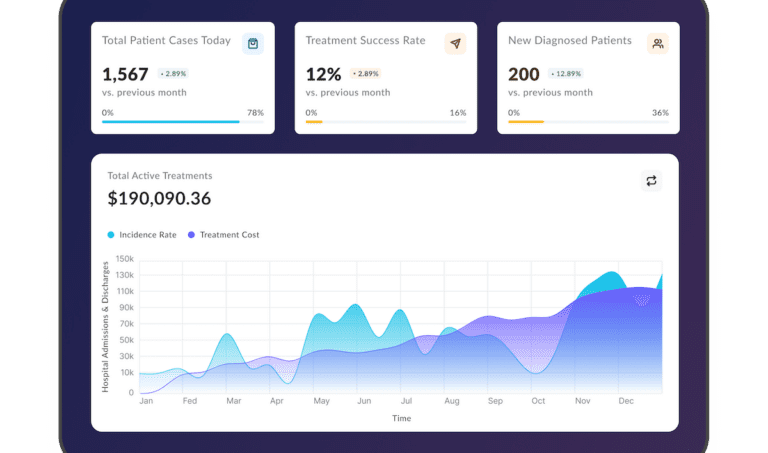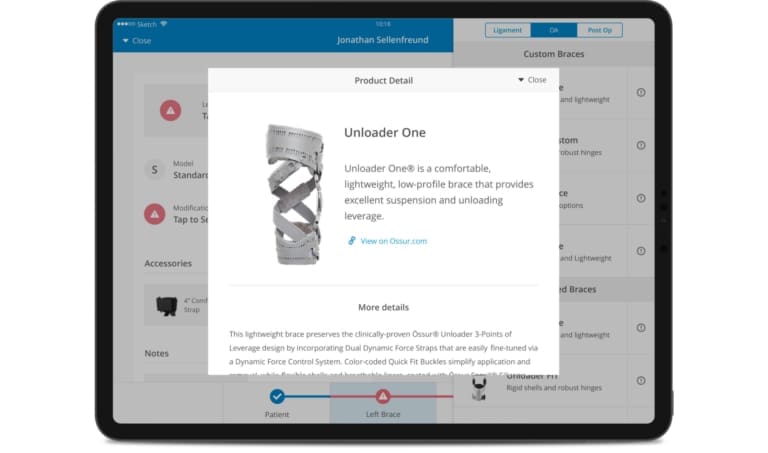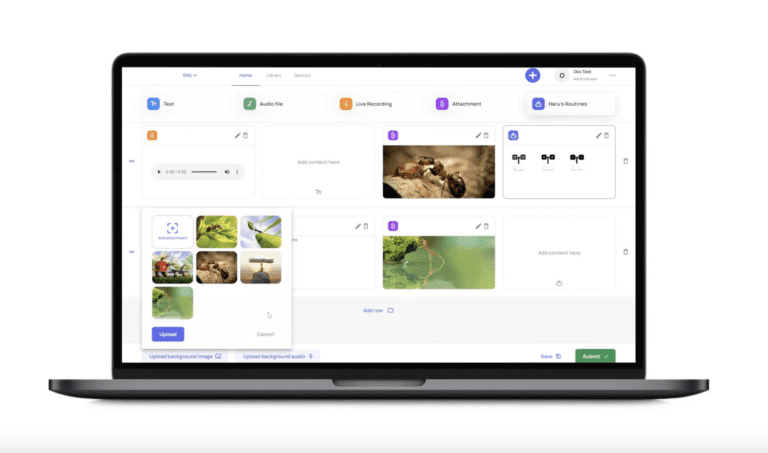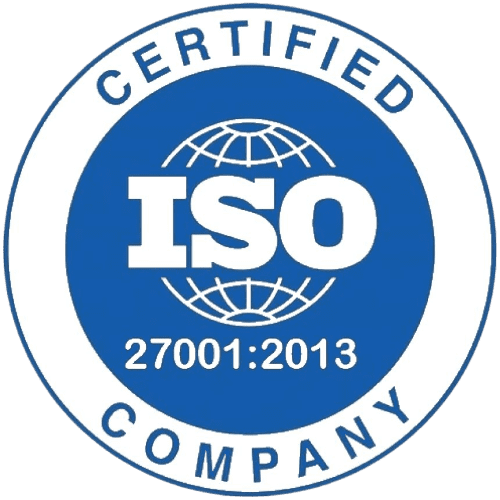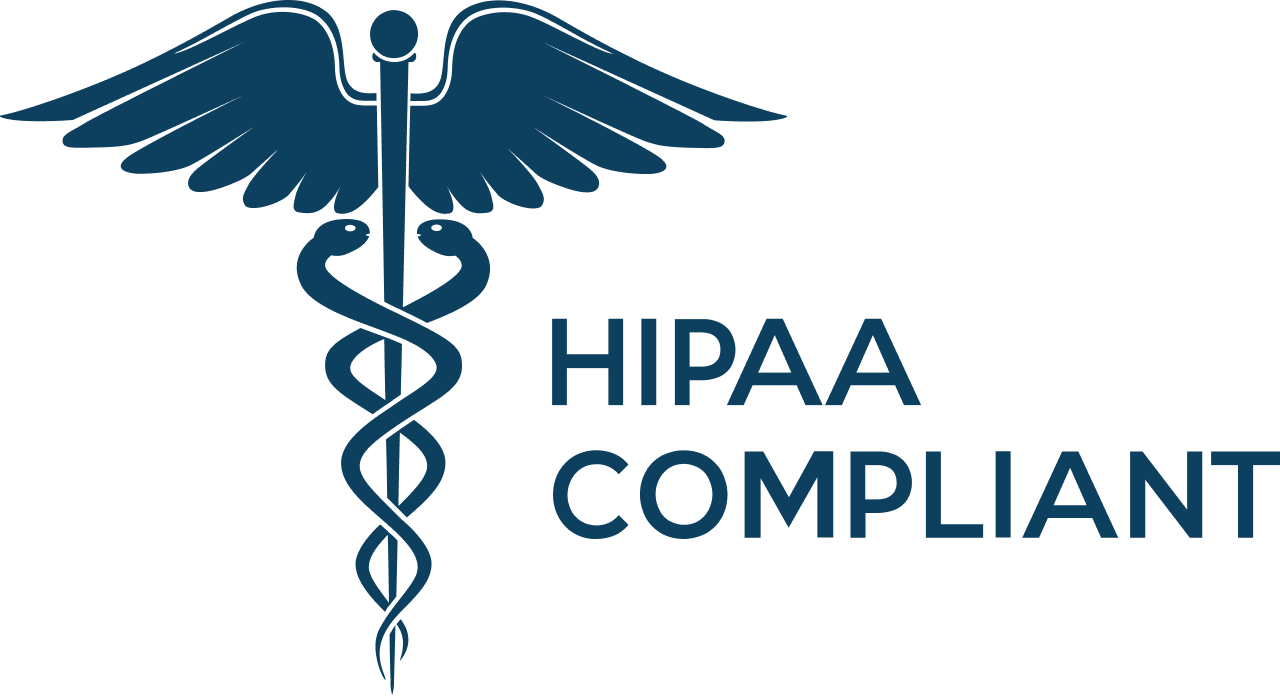Software Product Development Services in the UK: a Complete Guide
Did you know that even during the crisis of 2023, the UK’s tech sector attracted a massive $21.3 billion in investment, which surpassed the total investments in France, Germany, and Sweden? According to the 2023 UK Tech Nation Report, the technology sector in the UK grew 2.6 times faster than the overall economy, highlighting the significant impact of software product development services on this growth.
To maintain this momentum, the UK Tech Ecosystem update, supported by the Department for Digital, Culture, Media & Sport and the Digital Economy Council, is making a strong effort to boost the tech workforce. However, 93% of UK businesses report that they lack IT skills. How can they maintain progress and software development without enough qualified workers? One effective solution has been outsourcing, especially to regions like Eastern Europe, which are less affected by talent shortages than Western European tech hubs.

We provide companies with senior tech talent and product development expertise to build world-class software. Let's talk about how we can help you.
Contact usWe’re going to unpack this topic in our article. But let’s start, as usual, with the basics of software product development services in the UK and elsewhere.
Table of Contents
What is Software Product Development?
Software product development refers to the creation of a software application from conception to its final release and constant maintenance. Here’s a closer look at the fundamental components involved in custom software product development services:
1. Requirement Analysis: This initial phase is to collect and specify the software product’s requirements from stakeholders, which include potential users, business managers, and market analysts. Having a clear specification is crucial as it guides all the later stages of the development process.
2. System Design: Next, after the requirements are defined, the system design phase begins. Designers and engineers outline the key components, modules, and interfaces while thoughtfully planning the data structures and flow. This ensures that every aspect of the system is tailored to meet the specified requirements, focusing on scalability, performance, and integration capabilities. Furthermore, initial models or prototypes could be created to illustrate the interaction between various components of the system.
3. Implementation or Coding: Software developers begin to code the product with designs in hand. This stage is typically the most resource-intensive as it involves the actual creation of the software. Development is often conducted in iterations, which allows software parts to be built, tested, and reviewed in manageable segments.
4. Testing: After some part of the software is developed, it undergoes various tests to ensure it functions correctly and meets the initial specifications. Testing can include unit, integration, system, and acceptance tests to catch and fix any issues or bugs.
5. Deployment: Once the software is tested and ready for release, it is deployed to the user environment, where users can access it. Depending on the complexity of the software, deployment might be done in stages.
6. Maintenance and Update: Post-deployment, software products require regular maintenance to correct issues, enhance functionality, and boost performance in response to user feedback. This stage of custom software product development services includes updates to the software to maintain compatibility with environmental changes, adapt to new operating systems, accommodate hardware upgrades, or respond to new user demands.
Types of Software Product Development Services
When we talk about software product development services, there’s no universal solution that fits every business. Just as each company has unique needs, the approach to product development UK must adapt to match. Here’s a clear view of what these services typically encompass:

Custom Software Development
Imagine you have a specific vision for how a process in your company could be more efficient, but no off-the-shelf software fits the bill. That’s where custom software development comes in. Teams of developers, project managers, and UI/UX designers collaborate to create software that’s precisely tailored to your business’s requirements.
Enterprise Software Development
The scale of operations can make generic software solutions impractical for larger organizations. Enterprise software development zeroes in on creating powerful, scalable systems designed to manage large amounts of data, seamlessly connect various departments, and simplify complex operational processes.
Mobile App Development
With the majority of Internet traffic now coming from mobile devices, companies can’t afford to ignore the mobile space. Mobile app development services cater to creating applications for iOS and Android platforms and often cross-platform solutions that function seamlessly across both. Whether it’s for shopping, managing finances, or keeping track of health metrics, mobile apps connect businesses directly with their users.
Web Development
Web development creates the online face of your business—a website. From simple static pages to complex e-commerce platforms and customer service portals, there’s no limit to what businesses can achieve. But it’s not just about attracting visitors – a well-designed website can turn visitor interest into real-world results.
Software as a Service (SaaS) Development
SaaS software development focuses on applications that are hosted remotely on the cloud and accessible to users directly via the Internet. With SaaS, businesses can quickly launch new apps with minimal upfront costs since these services typically operate on a subscription basis. SaaS developers make these apps scalable, accessible from anywhere, and always up-to-date.
Product Development Consulting
Sometimes, you need more than just development; you need strategic guidance on how to align your software initiatives with business goals. A product development company fills this gap by offering expert advice on everything – from the right technologies selection to development process optimization that ensures the final product delivers the expected business value.
The Software Development Ecosystem in the United Kingdom
When you think of technology hubs, Silicon Valley might come to mind first, but the United Kingdom is just a little behind with its vibrant centers of innovation and technological advancement.
Major Tech Hubs of the United Kingdom: A Closer Look
London stands as the pulsing heart of the UK’s tech industry. It is home to thousands of startups and established tech companies that specialize in a range of areas, from artificial intelligence to blockchain technology. In this vibrant ecosystem, companies not only start but thrive, supported by a culture of innovation and access to substantial capital.
In the north, Manchester quickly becomes synonymous with tech innovation. Known historically for its industrial strength, today, it redefines itself as a center for digital creativity. It’s a place where technology meets practicality in IoT, e-commerce, and cybersecurity. With initiatives like MediaCityUK, which hosts major broadcasters like the BBC and ITV, Manchester demonstrates that its industrial roots now robustly support its tech ambitions.
Scotland contributes impressively to the UK’s tech prowess, particularly in FinTech and data science software product development services for startups. In cities like Edinburgh and Glasgow, a combination of top-notch universities and a supportive community vibe helps nurture tech startups. These cities are known for their advancements in data analytics, financial services technology, and digital health solutions.

Key Areas of Software Development Expertise in the UK
This environment is focused on creating solutions that drive industries forward—from FinTech to HealthTech and beyond.
FinTech
The UK, particularly London, has established itself as a global leader in financial technology thanks to its traditional finance roots and progressive Open Banking rules. It’s home to major players like Starling Bank and boasts over 1,600 fintech firms, with that number set to double by 2030. The marriage of finance and technology here results in high demand for software product development services for financial firms.
HealthTech
With a focus on better patient care and more efficient healthcare operations, the UK’s Health Tech sector grows more robust each day. Developers in this field work on everything from telemedicine platforms to software that manages patient records securely, ensuring that healthcare delivery keeps pace with technological advancements.
EdTech
The education sector has significantly transformed thanks to widespread software product development services for startups. With a slew of companies developing everything from virtual classrooms that connect teachers and students across continents to AI-driven programs that adapt to a student’s learning pace, UK’s EdTech enhances the effectiveness and reach of education.

However, the rigorous demands of such development often require a diverse set of skills that can be hard to find in a local talent pool. Facing these challenges, UK companies frequently look beyond their borders to ensure that their software solutions meet the expected high standards and stay ahead of international competition. Software development outsourcing allows these companies to access a broader talent pool without the constraints of local shortages, often at a lower cost due to differing economic conditions.
Outsourcing to Eastern Europe offers a compelling package: a robust educational system focused on engineering and computer sciences produces highly skilled tech professionals, while cultural and geographical proximity ensures smoother collaboration compared to other outsourcing destinations. Ukraine, in particular, has built a reputation for reliability and excellence in software development. It hosts a vibrant tech community known for its strong work ethic and innovative approach to software development challenges.
The combination of these factors makes Ukrainian IT and its neighbors more than just a practical choice for outsourcing; they become strategic partners that help UK companies maintain a competitive edge in a fast-paced global market. This partnership has proven especially valuable as companies not only seek to fill immediate gaps but also aim to build long-term relationships that will foster continuous innovation and growth.

Selecting the Right Software Development Partner in the UK
In the UK, where the tech landscape is both diverse and sophisticated, the right choice of IT outsourcing services company can mean the difference between a project’s success and failure. Here are the key factors to consider when you select a product design and development company:
1. Assess Experience and Expertise
Here’s how you can delve deeper than just the surface details like the number of years they’ve been in operation:
Examine Portfolios
A company’s portfolio offers a window into the projects it has handled and the solutions it has developed. Look for diversity and complexity in its previous work that matches the scope of your project. A portfolio that features a variety of industries or specialized solutions similar to what you need can indicate a versatile and experienced provider.
Review Client Testimonials and Case Studies
Client testimonials and in-depth case studies shed light on a company’s reliability and fulfillment of commitments. Search for feedback that details the company’s approach, its communication methods, its capability to solve problems, and the overall quality of its delivered products. Positive reviews from past clients, particularly those within your sector, are a strong testament to the dependability and proficiency of a software development partner.
Industry Experience
Consider a partner with a proven track record in your specific industry. Such means the company is likely familiar with the common challenges and compliance requirements specific to your field. This familiarity can significantly speed up the development process, as the team would not need to spend as much time ramping up on industry-specific knowledge.
Alignment with Business Needs
Assess how well the company’s offerings align with your business objectives. A partner that has successfully executed projects with similar business models or technology requirements to yours can bring a wealth of relevant knowledge and innovative solutions that are more likely to meet your expectations.
2. Cultural and Communication Fit
When selecting a software development partner, assessing cultural and communication compatibility is as crucial as evaluating technical prowess. This aspect, though less tangible than technical skills, can significantly influence the success of your project.
Shared Work Ethics and Business Values
The foundation of any strong business relationship is a shared ethos and set of core values. Your development partner should understand and resonate with your company’s mission and work culture. This alignment ensures that both parties hold similar standards for quality, commitment, and ethics, which are essential for long-term collaboration. A partner who appreciates your business priorities and operational approach will naturally strive to meet, if not exceed, your expectations.
Transparent and Effective Communication
Clear and transparent communication is essential for the success of any project. It allows ideas to be shared openly, ensures feedback is helpful, and guarantees that problems are resolved quickly. This includes regular updates and check-ins, transparent discussions about project hurdles, and clear explanations of technical processes. A partner proficient in communicating complex ideas simply and clearly can demystify the development process, making it accessible and understandable for non-technical stakeholders.
Preventing Misunderstandings
Miscommunications and cultural mismatches can severely impact project timelines and outcomes. If your development partner operates on a different set of cultural norms or communication protocols, it can lead to misunderstandings and frustrations on both sides. For instance, a partner who values autonomy in decision-making might consult less frequently on project changes, which could be an issue if you expect a collaborative approach to all decisions. Recognizing these potential pitfalls early on through careful partner selection can prevent costly disruptions and dissatisfaction.
3. Understand Project Management Methodologies
Understanding a company’s project management approach is also vital. Do they use Agile, Scrum, or Waterfall methodologies? Each has its strengths and is suited to different types of projects.
Waterfall Model
This classic approach to software development follows a structured sequence of distinct phases: conception, initiation, analysis, design, construction, testing, quality assurance, implementation, and maintenance. Each stage must be complete before the next one can begin, with no overlap, making it ideal for projects with fixed, clear requirements. “Waterfall” aptly describes the steady, step-by-step workflow through the development process, much like a cascading waterfall.
Agile Development
Agile methodology (and Scrum as its framework) breaks the old mold of marathon project phases and divides the work into shorter cycles called “sprints.” Each sprint allows teams to tackle manageable chunks of work, assess their progress, and adjust before moving on, focusing on continuous improvement and customer feedback at every iteration. It helps software teams adapt rapidly to market trends, enhance collaboration, and iterate on product features based on direct user feedback, making visible progress a motivating factor for teams and stakeholders alike.
DevOps Methodology
DevOps merges software development (Dev) with IT operations (Ops) to shorten the development lifecycle, frequently and reliably delivering features, fixes, and updates. This method emphasizes automation, monitoring, and continuous integration and deployment, which enhances the productivity of both development and operations teams. DevOps is particularly valued for its ability to maintain high-quality standards while accelerating the delivery of software products.
4. Cost Considerations and Engagement Models
Finally, discuss and understand the pricing and engagement models. These models determine how you will be billed for the services and substantially influence project management dynamics and outcomes. Here’s a detailed look at the main types of engagement models you might consider:
Fixed-Price Contract
A fixed-price contract is straightforward: it involves a predefined scope of work with an agreed-upon price that does not change. This model is suitable for projects with clear requirements unlikely to evolve during development. The main advantage here is budget certainty. You know exactly how much the project will cost from the outset, which makes financial planning easier. However, the downside is that there needs to be more flexibility to adjust the scope or add features without renegotiating the terms and potentially incurring additional costs.
Time and Materials (T&M) Agreement
Under the time and materials model, billing is based on the actual time spent by the development team and the materials (including technology and resources) used during the project. This model offers flexibility to adapt the project scope as new needs arise or initial ideas evolve. It is ideal for projects where it’s challenging to define the full scope upfront or when requirements are expected to change. The transparency of this model allows you to see exactly where and how your budget is being spent, although it requires careful management to keep track of costs and prevent budget overruns.
Hybrid Model
A hybrid model combines elements of both fixed-price and T&M contracts. Typically, this model might involve a fixed price for the initial phase of the project when the requirements are clear, followed by a T&M approach for later phases that might require more flexibility. This model balances the predictability of fixed costs with the flexibility of adapting to project changes, which can be particularly useful for large projects with multiple phases.
Our Case Studies
Why do we navigate the UK technology sector with such confidence? The answer is simple: we are deeply familiar with it. Over the years, we’ve provided software product development services for startups and established UK companies, helping them meet but often surpass their digital goals. Here are just a few cases we completed for the UK market:
First Home Coach: We developed an app that helps first-time UK homebuyers create a personalized plan, analyze costs, and track every stage of the property buying process. The app was designed to be intuitive and user-friendly, and in its first year alone, it helped over 5,000 users in the UK. That highlights our ability to create user-friendly SaaS solutions that simplify complex processes.

Optimum Pay Group: In this project, we delivered a comprehensive payroll and account management system that streamlined the client’s operations and significantly reduced processing times. That demonstrates our expertise in software product development services for financial firms that enhance business efficiency.
Return2Play: We created a comprehensive solution for a medicine service provider that helps manage the treatment of sports injuries. This project underscores our commitment to delivering health tech solutions that are both effective and compliant with medical standards.
Build your Software Product with Relevant
As you can see, we grasp the complexities and nuances of software product development, particularly when outsourcing to European markets, including the UK. Whether you need product development consulting or reliable product design services, Relevant Software stands ready to guide you through the process with precision and professionalism.
Join the many partners who trust Relevant Software for their development needs and hire remote software developers to complete your project perfectly. Contact us!
Our core services:
Do you want a price estimate for your project?
Do you know that we helped 200+ companies build web/mobile apps and scale dev teams?
Let's talk about your engineering needs.
Write to us